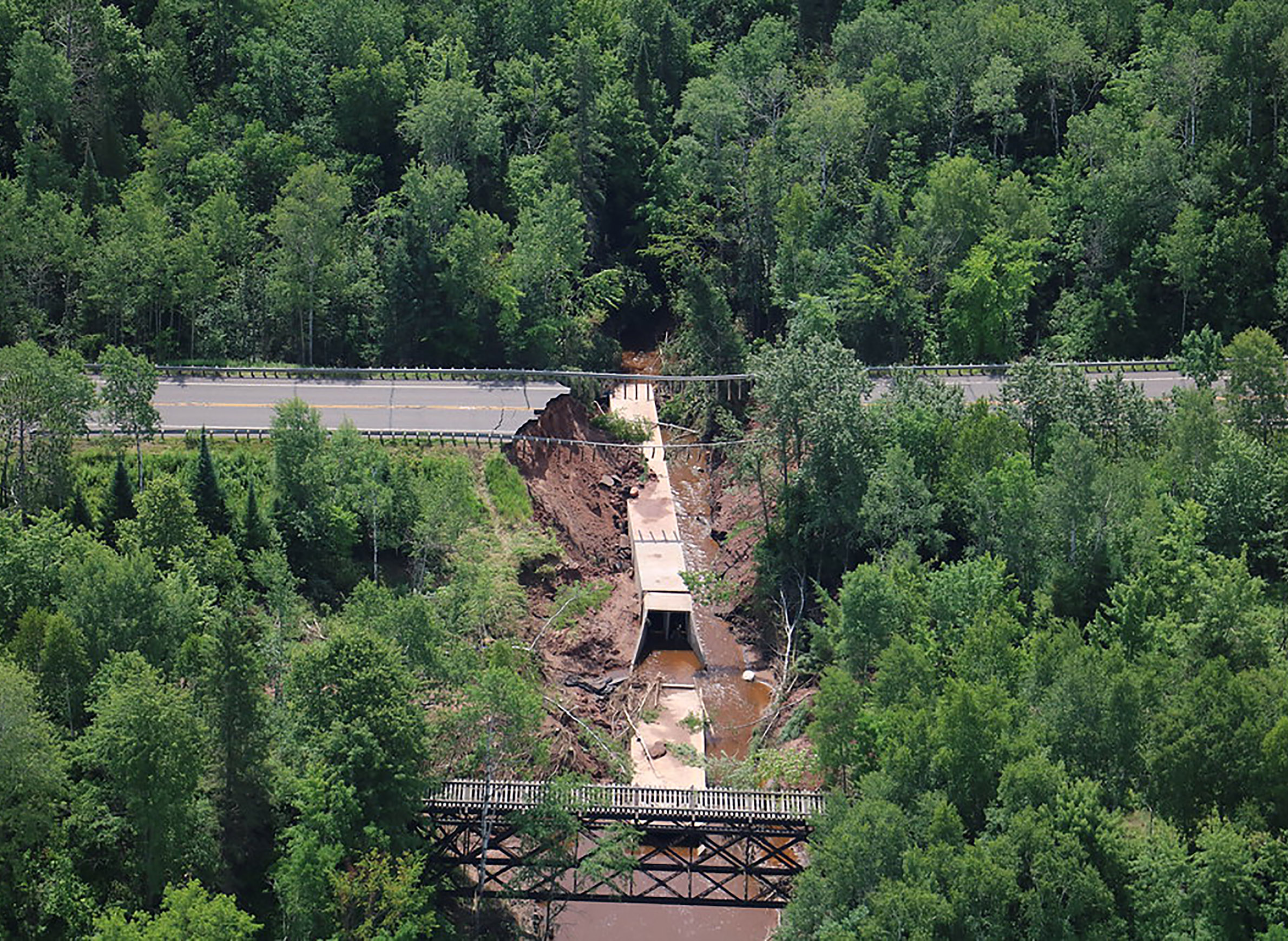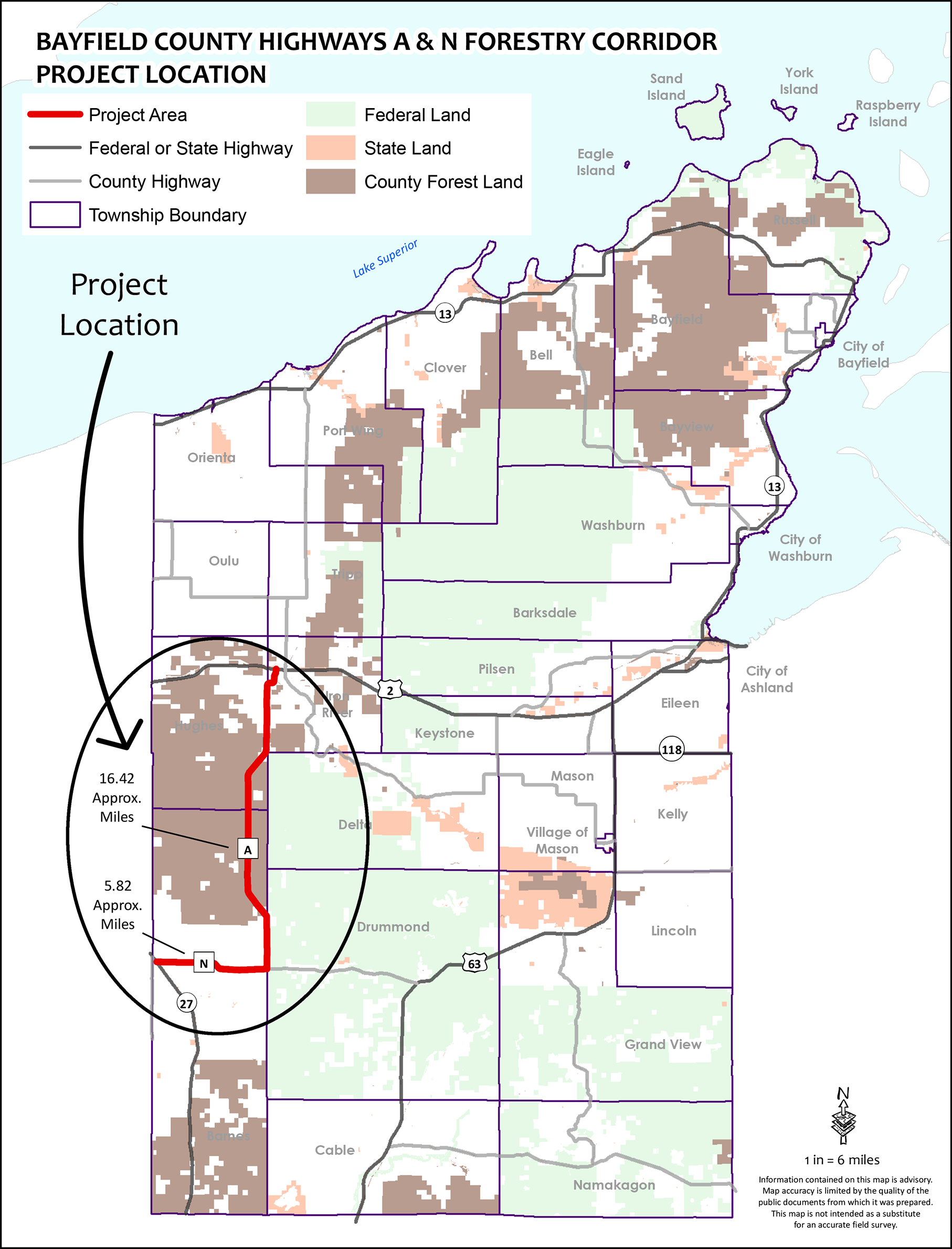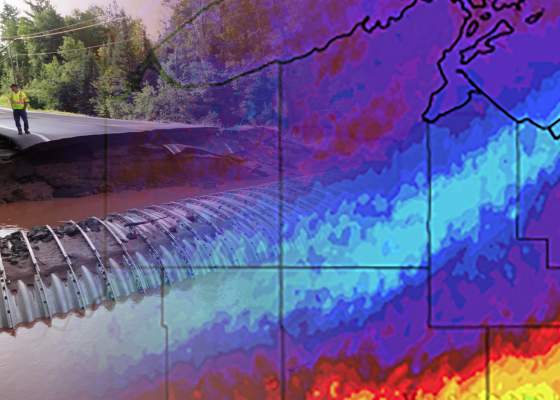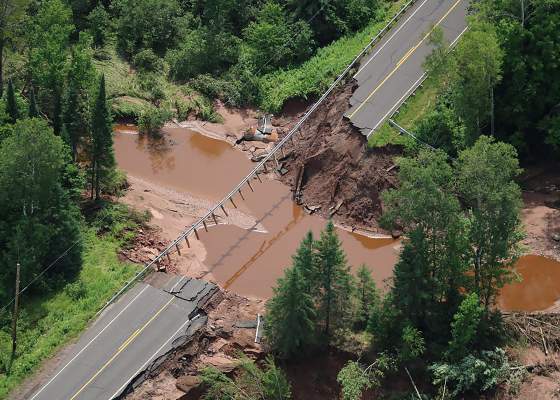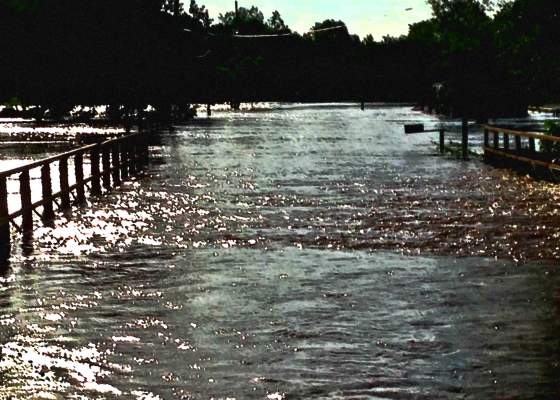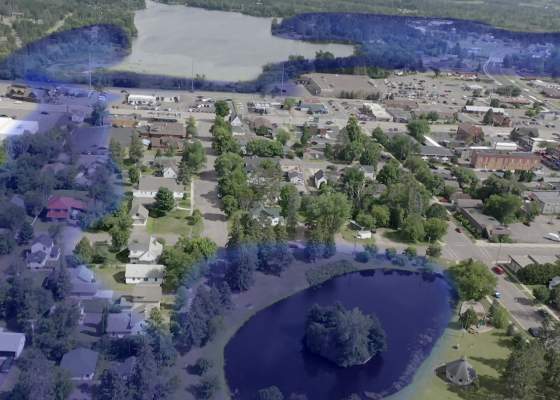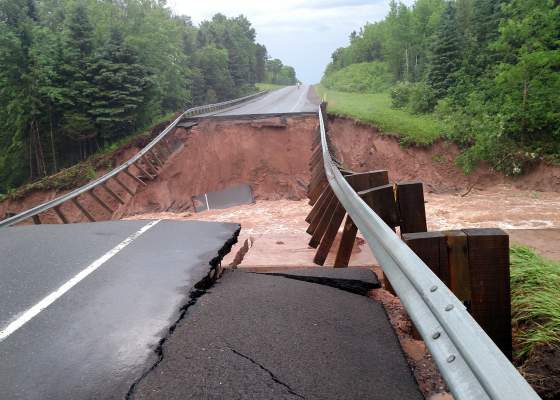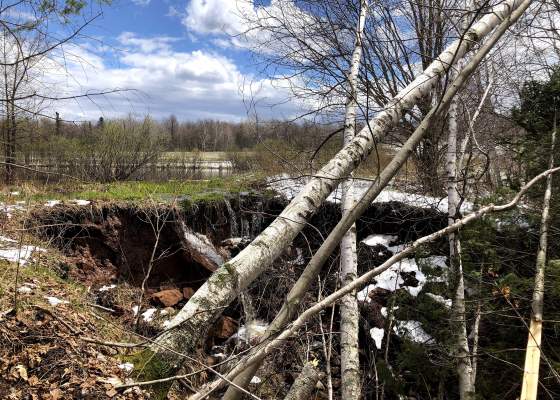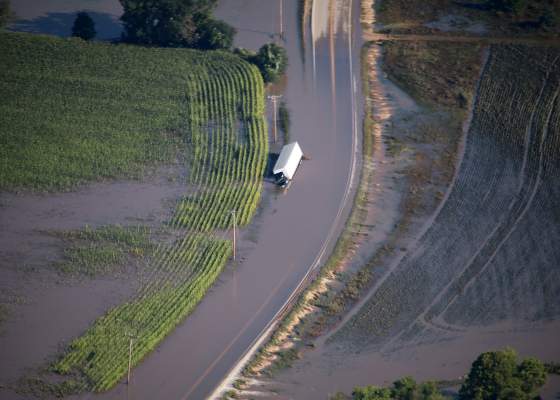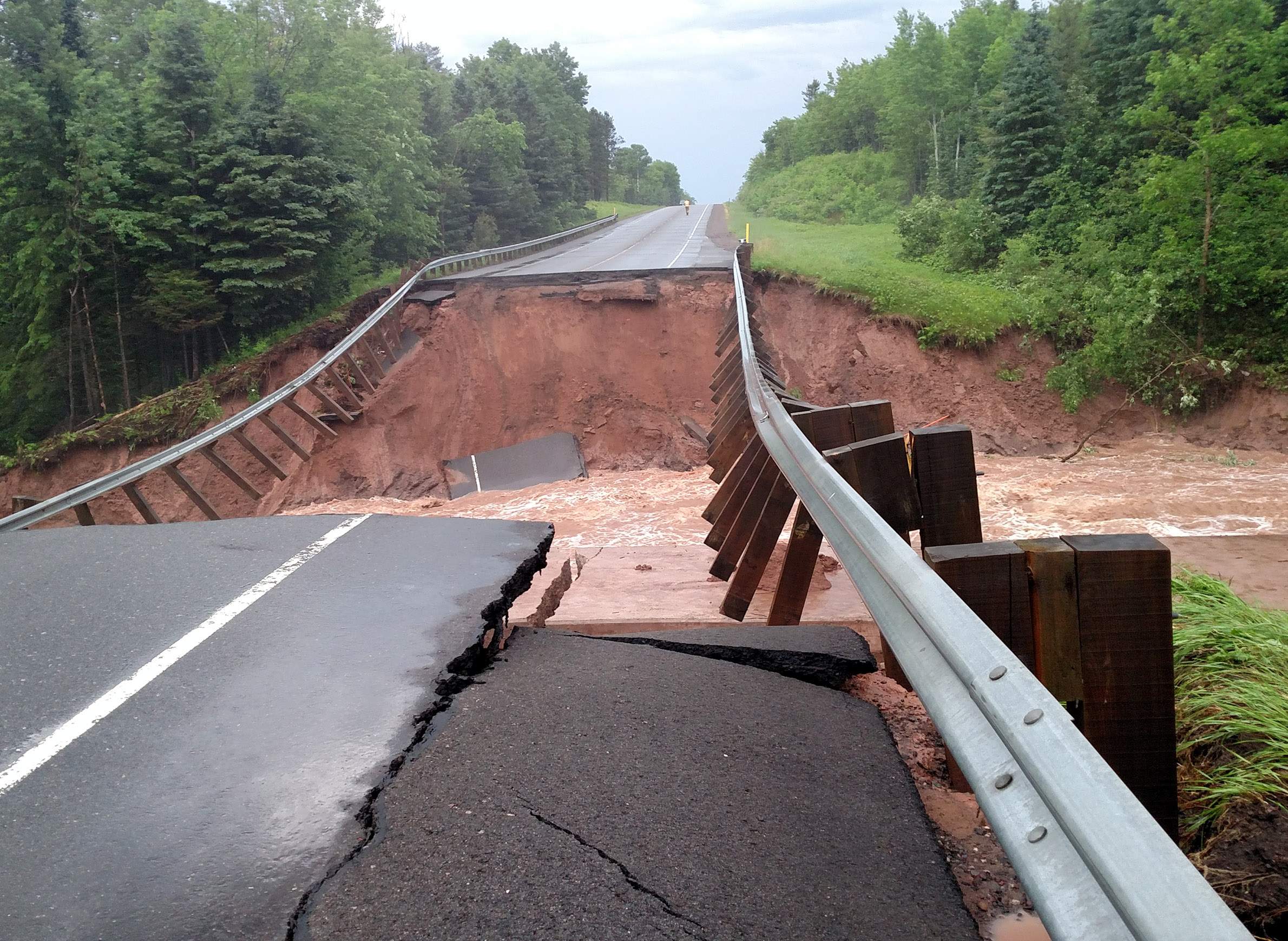
Bayfield County Pursues Flood Resiliency To Protect Its Economy

Paul Johanik sees a common sense solution to an obvious problem, so why does it seem so difficult to accomplish?
The problem: Repeat floods are damaging the same stretches of road in Bayfield County, where Johanik is the highway commissioner. The repeat nature of the damage is thanks in part to infrastructure that cannot stand up to extreme rains, in the form of culverts, the pipes that carry streams and stormwater beneath roads. It's a well-documented issue not only in Bayfield County, but in a wider region of northwestern Wisconsin and elsewhere across Wisconsin and the United State.
A solution? Better infrastructure, which costs money that local governments often don’t have, in part because they're spending it fixing the same flood-damaged roads over and over again. In Bayfield County, the highway department had to repair flood damage on some of the same roads following major "500-year" storms, in July 2016 and June 2018. Of the 14 county roads, nine received damaged in the 2018 flood, with two of those roads washing out in the same places they did in 2016.
"If we [could] solve the problem the first time, that money could be used elsewhere," Johanik said in an Aug. 16, 2019 interview on Wisconsin Public Television's Here & Now.
To Johanik's point, Bayfield County, like many local governments in the region, has been obliged to spend limited funding to fix a problem that he and others say can be mitigated.
Not only is the road damage costly to repair, but associated closures are also costly to the local economy. Farming, logging and tourism in Bayfield County all depend on a functional road network. Road closures can especially hamper tourism in the county, which serves as a gateway for hundreds of thousands of annual visitors to the Apostle Islands National Lakeshore. Long detours can deter would-be tourists, as well as slow emergency responders and local commerce.
"Tourism's very important in Bayfield County," said the county administrator, Mark Abeles-Allison, in a July 2019 interview with WisContext. He said the repeated floods — especially the one in 2018 — prompted the county to review everything from how it communicates road closures to residents and visitors to how it can build more resiliency into its transportation infrastructure. Resiliency can mean many things, but in this case it largely translates to ensuring that roads and highways are built to better withstand extreme weather.
As a result, Bayfield County has been proactive in upgrading culverts and bridges and tracking down new sources of funding. Among those, Abeles-Allison said the county for the first time ever is considering a bond issue to fund road repairs and upgrades. It’s also seeking federal grants for major road projects and advocating for changes to how federal agencies allocate resources for rebuilding after a disaster.
Currently, the Federal Emergency Management Agency and the Federal Highway Administration don't factor resiliency into disaster aid grants, and in most cases do not fund infrastructure upgrades intended to reduce the likelihood of damage from future floods. Johanik and his counterparts throughout the region are calling for the federal government to change its rules and factor resiliency into its grant funding deliberations.
To that end, Johanik and Abeles-Allison participated in an August 2019 roundtable with officials from Bayfield and Ashland counties and the Bad River Band of Lake Superior Chippewa, along with U.S. Sen. Tammy Baldwin, a Democrat from Madison. Baldwin is cosponsoring a bipartisan bill that would require the Federal Highway Administration to consider resiliency in grant applications.
Johanik expressed his support for the bill in the Aug. 16 episode of Here & Now.
"If we knew of an area in the county on a county road that continually washes out water over the road because the structure is too small, we could maybe address that situation ahead of time, before a major rain event, and then be able to handle that water and keep our road in place," Johanik said.
In a separate Aug. 16, 2019 interview on Here & Now, Wisconsin’s transportation secretary-designee, Craig Thompson, said state agencies recognize the need to shore up infrastructure in light of a changing climate.
"[Climate change] is having impacts on us in a lot of different ways, and it's something that we need to keep relying on science and updating how we’re dealing with this," Thompson said.
Thompson said the state is also advocating at the federal level for changes to how disaster aid is allocated, including that it prioritize infrastructure upgrades that improve resiliency to future disasters. Additionally, he said, the state is becoming more proactive in upgrading highway infrastructure as it nears the end of its life.
"We are trying to build some of that [resiliency] in," he said.
In the meantime, the Bayfield County has applied for a major U.S. Department of Transportation grant to fund an upgrade of a county road into a second major north-south connector between U.S. Highway 2, which bisects the county from west to east, and areas to the south. Abeles-Allison said that turning portions of two county highways into an all-season connector would take pressure off U.S. Hwy 63, which is currently the only major north-south route in the county. Washouts forced closures of the highway after both the 2016 and 2018 storms.
Such a connection would "give us in these kind of seasons of tremendous variability an alternate route for local as well as regional traffic," Abeles-Allison told WisContext, noting that he and county staff believe the route will be crucial to the county's long-term economic development. In June, the county board approved $3.75 million in matching funds for the project if the federal government greenlights it.
At the state level, Democratic Gov. Tony Evers and the Republican-led Legislature in July approved a state budget that will increase state aid for local transportation projects by 10% on an ongoing basis, or about $66 million over the budget's two-year period. The budget also produced a one-time $75 million grant fund for local transportation projects with an economic development component. Though not without controversy, the competitive grants could be awarded for anything from roads and highways to rail projects and bicycle infrastructure.
It is unclear whether the state will factor a proposed project's potential for increasing resiliency to extreme weather and climate change.



